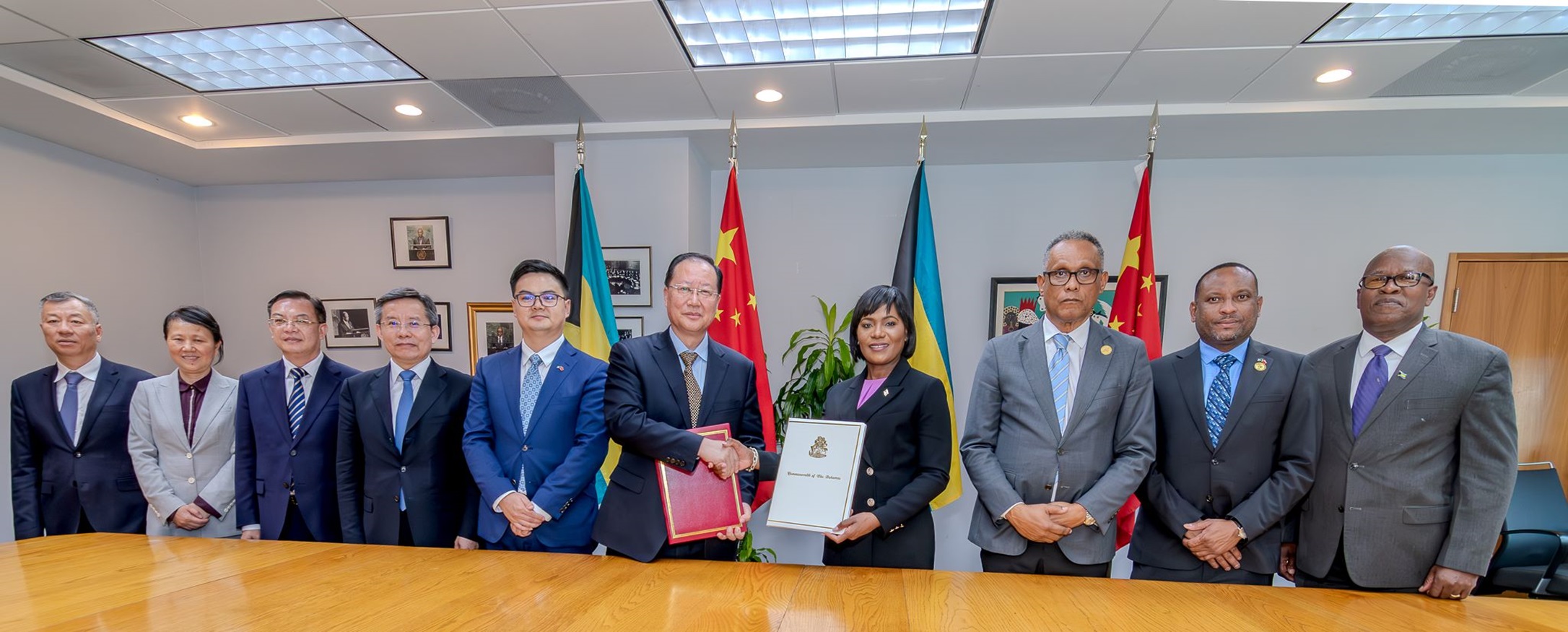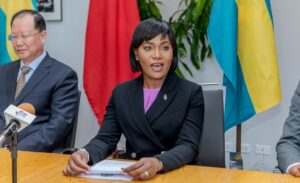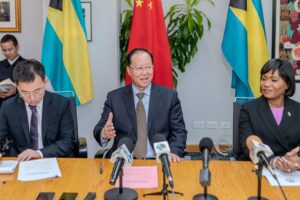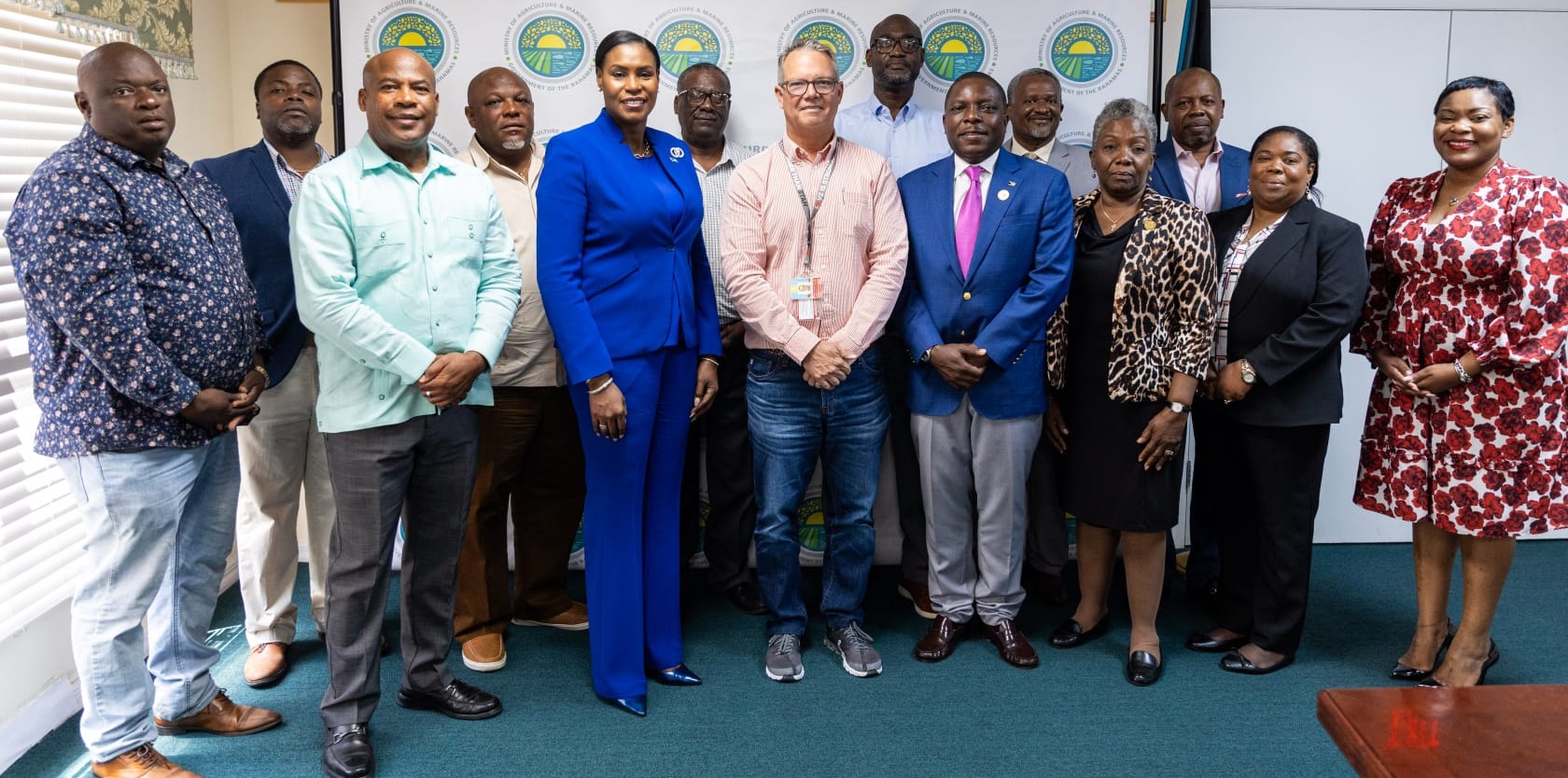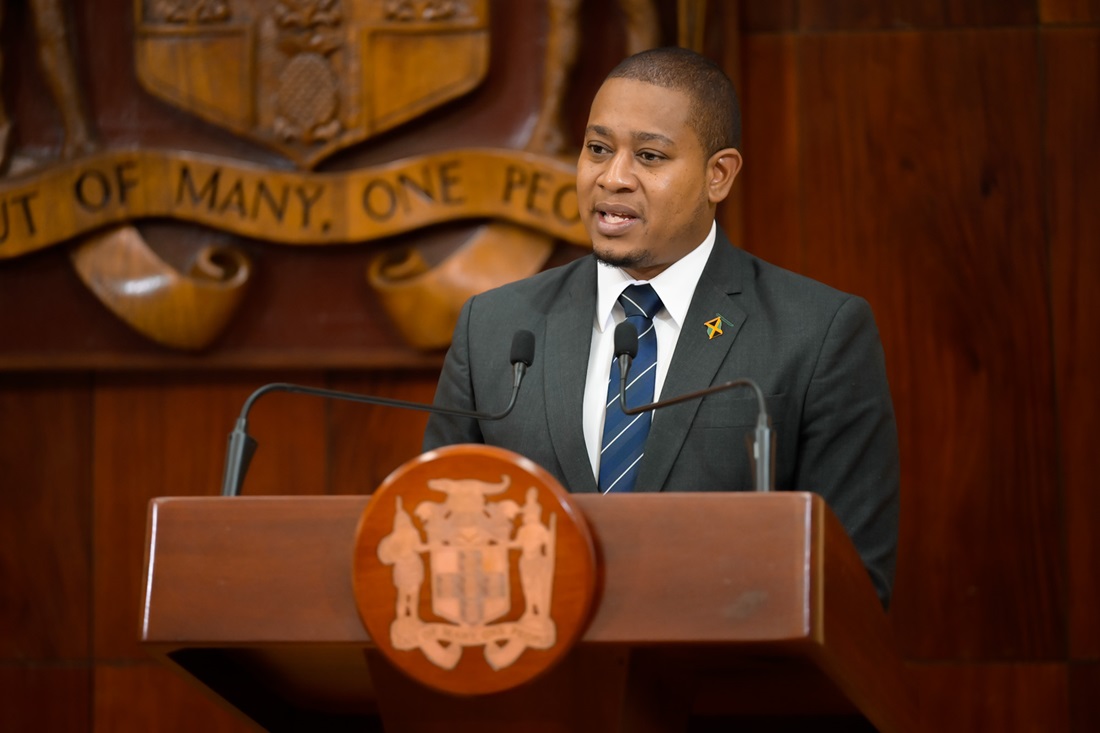Remarks by The Rt. Hon. Perry G. Christie Prime Minister Commonwealth of The Bahamas at the Launch of the YES Bahamas Campaign “Equal Rights for our Sons and Daughters” on Sunday, April 10, 2016 Harry C. Moore Library College of The Bahamas:
It is my very great pleasure to be here today in order to welcome — with excitement and with gratitude — Lady Sharon Wilson and Lynn Holowesko, as the official Co-Chairs of the YES Bahamas Campaign.
I look out at this room and I see people from all of the nation’s political parties, happy and excited to work together in service of this great cause – and it underscores for me the importance of what is at stake. All of us here today are in full agreement that some things are bigger than politics – equal rights for our sons and daughters certainly meets that standard.
Although he couldn’t be here today, I want to thank the Honourable Leader of the Opposition, Dr. Minnis, for his unquestionable commitment to equal rights for Bahamian citizens. He has worked with the Constitutional Commission, he and I have sat with church leaders, and he worked with me to recruit the very impressive Co-Chairs we are introducing today. I thank him for his resolve and his determination.
He and I agree that the YES Bahamas Campaign must be one that brings Bahamians together. Already, so many people have asked how they can help – we have heard from students and teachers, mothers and fathers, leaders in the church, artists and athletes, Bahamians from across our islands.
The YES Bahamas Campaign will bring people together in common cause, and the Co-Chairs who will run the campaign will bring their very considerable determination, experience, and energy to this historic movement for change.
Lady Sharon Wilson has been a teacher and a Chief Magistrate, runs one of the nation’s leading law firms, and is currently serving as President of the Senate. She is active in her church, the recipient of awards too numerous to list here today, a member of multiple boards, and known for her considerable philanthropic and charitable work.
Mrs. Lynn Holowesko has served as a Senator and as President of the Senate, Chaired both the Bahamas Environment, Science and Technology Commission and the National Trust, Co-Chaired a Panel of Experts on Environmental Law for the United Nations, and is – clearly — a very distinguished member of the Bahamian Bar.
In other words: these women are formidable and outstanding leaders! They have already done so much to contribute to our country, but clearly they are not content to rest on their laurels – their presence here today shows their deep patriotism and their dedication to building a more just Bahamas. They will be supported by an excellent team lead by former Senators Cheryl Bazzard and Heather Hunt who will act as Co-Executive Directors. Both of these ladies represent the next generation of outstanding leaders. Each in their own right continues to serve our nation well.
Thank you all so much for bringing on board your enthusiasm and your expertise. I am confident that under your leadership, the YES Bahamas Campaign will both educate and inspire.
Before I turn things over, I want to take a moment to outline how we arrived at this moment – to put this referendum in context, and explain its purpose and importance.
The Bahamas Independence Order of 1973 was an Act of the British Parliament that provided for The Bahamas to become an independent sovereign nation, and our Constitution is an appendix to that Act. The 15 Bahamian men who attended a Constitutional Conference in London in December of 1972 are known as the Framers of our Constitution. To this day, the students in our schools learn of their leadership and contributions.
They created a Constitution which prevented Parliament from passing laws which would discriminate based on race or creed or place of origin – but they did not include sex – that is, they did not insert any language in the Constitution which would prevent Parliament from passing laws which discriminate against men or women.
This referendum is simply about bringing our Constitution up to date to reflect our shared values as a society. Men and women will always be different, and no law or change to the Constitution could or should ever change that – in fact, we celebrate our differences – but we do believe that as citizens who share the same responsibilities, the time has come for men and women, our sons and daughters, to share the same rights.
I know this is a value shared by Bahamians because a long process of consultation has led us to this moment. The Constitutional Commission, appointed in 2012, has traveled far and wide throughout the country, holding town halls and meeting with citizens. The Commission consulted not just widely but deeply, holding extensive meetings with lawyers, academics, church leaders, and many other citizens who wanted to share their views. I acknowledge in particular the very substantial role that was played in the process by the late Dr. Myles Munroe, the founder of Bahamas Faith Ministries. He and other Leaders met many times with the Constitutional Commission and me. They gave excellent suggestions, were very energetically involved, and very committed to seeing the Constitution reformed so that men and women could achieve equal rights as citizens.
Earlier this month, the bills received overwhelming support in the House of Assembly, and then passed unanimously in the Senate. So now they go to the people – and this is a constitutional referendum, so the people’s word is final and binding.
On Tuesday, June 7th, Bahamians will be asked to vote YES on four common sense changes to our Constitution, so that Bahamian men and women are able to pass citizenship to their families in the same way, and so that it will be impossible for any future Parliament to pass laws discriminating against either men or women.
I want to be clear: these bills do not propose radical change. Instead, this is about making sure that the supreme law of the land reflects our values and our commitment to fairness.
The First proposed Amendment would allow children born abroad to obtain Bahamian citizenship from either their Bahamian father or mother, in those circumstances where the other parent is not Bahamian. Right now, only Bahamian men are entitled to pass their Bahamian citizenship to their children born abroad in these situations.
This amendment says: Bahamian mothers and their children should have the same rights as Bahamian fathers and their children.
Amendment Two would enable a Bahamian woman who marries a non-Bahamian man to secure for him the same ability to apply for Bahamian citizenship – following the same steps, and subject to the same considerations – currently afforded to a Bahamian man married to a non-Bahamian woman.
I would like to emphasize that the second bill would NOT make citizenship automatic for foreign husbands of Bahamian women, just as it is not currently automatic for foreign wives. It merely grants those spouses the same right to apply for citizenship, following the same very long process.
There is nothing easy or quick or convenient about becoming a citizen this way – the process typically takes more than 10 years, and involves interviews and inspections to ensure the marriage is legitimate.
Immigration officers are given the same investigative powers as police officers as they determine whether a marriage is legitimate. And as of 2015, it is now a criminal act to participate in a fraudulent marriage, punishable by a fine or jail or both.
Thus, amendment two is designed only to help real Bahamian families, and its purpose is to give Bahamian women the same rights as Bahamian men.
Amendment Three would correct that provision in our Constitution that currently discriminates against men. The change would mean that an unmarried Bahamian man could pass on his Bahamian citizenship to a child fathered with a non- Bahamian woman, if he is able to prove by DNA evidence that he is the father. This right currently belongs only to women.
We are ready for a Constitution that supports fathers who want to keep their children close.
Amendment Four would update Article 26 of the Constitution, so that it would become unconstitutional for Parliament to pass any laws that discriminate based on sex, which is defined as “male or female”.
There have been some questions about the intent and the possible effects of this change. The purpose of this amendment is only to ensure that Bahamian men and women are equal under the law.
I am going to emphasize that in The Bahamas, by law – under the Matrimonial Causes Act — marriage must be between a man and a woman, and this amendment will not change that.
In fact, the lawyers who drafted the language of the amendment went out of their way to protect traditional marriage, by defining “sex” as meaning “male or female”. The language is clear, and the intent of Parliament – which any future court is likewise obliged to consider – is also crystal clear.
And I am advised that there have been NO cases in Commonwealth countries like ours, with a Westminster-style Constitution, in which the right to non- discrimination on the basis of sex led to a judicially-created right to same-sex marriage.
I repeat: this referendum will not cause same-sex marriage to become legal in The Bahamas. Marriage in The Bahamas will be legal only if it is between a man and a woman, and male and female are determined at birth.
I am so emphatic because it is so important for Bahamians to vote on what is really at stake – equal rights for our sons and daughters – and not let false rumours or incorrect information hold sway.
This referendum does not seek to change Bahamian society or our traditional values – instead it seeks to change the Constitution so that it more clearly reflects those values, and our shared belief in fairness.
And so with full confidence, with immense gratitude, and with great anticipation — the baton is passed – to these very distinguished Co-Chairs, and to the many Bahamians who believe in equal rights.
I know the coming weeks will see a great celebration, an outpouring of support from those who are excited to make history, and in particular, the involvement of first-time voters, who have become eligible to vote since the previous election.
The YES Bahamas Campaign will be relying on Bahamians young and old for their creativity and enthusiasm, visiting each of our islands, and providing information to Bahamians on each of the amendments. And the Constitutional Commission will continue a very intense schedule of information sessions, which will also be held across the islands, where Bahamians can ask their questions in person and receive answers and information from legal experts.
In carrying out this work the Commission will continue to operate independently and with neutrality. Its job is to educate not to advocate for a Yes or No vote.
I want to share a conversation I had recently with an old-timer in my constituency. He asked me about the referendum, and I explained it the way I’ve done so here today. I’m not sure he was completely with me, though, until I asked him to think about his grandchildren who were playing near us in the street. Did he think that his grandsons and his granddaughters should have different rights as Bahamian citizens? He was indignant at the very thought. He wants the best for all his grandchildren – his dreams for the girls are no less grand than his dreams for the boys. And so he agreed — he wants them to grow up in a country where they are equal under the law.
I know this gentleman will be voting YES on June 7th, and that in this he will be joined by Bahamians from all walks of life, across our beautiful islands. Because there are moments to unite as a nation, moments when we come together to do the right thing, and this is one of those moments.
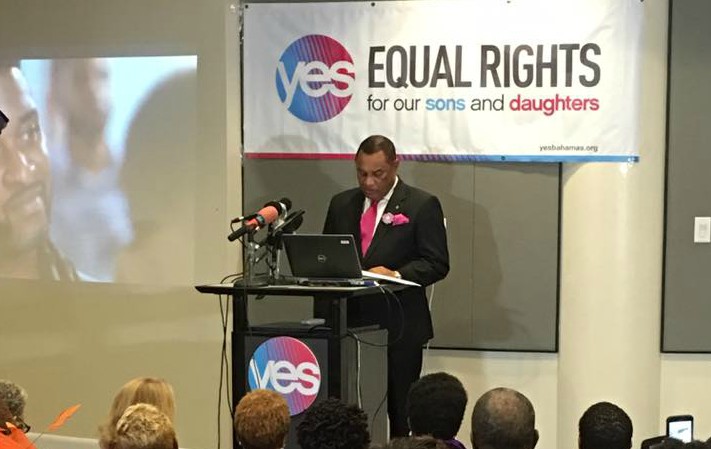

 News1 week ago
News1 week ago
 Health1 week ago
Health1 week ago
 TCI News4 days ago
TCI News4 days ago
 Caribbean News7 days ago
Caribbean News7 days ago
 Education7 days ago
Education7 days ago
 Caribbean News1 week ago
Caribbean News1 week ago
 Caribbean News7 days ago
Caribbean News7 days ago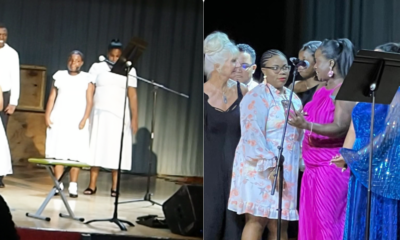
 News1 week ago
News1 week ago
